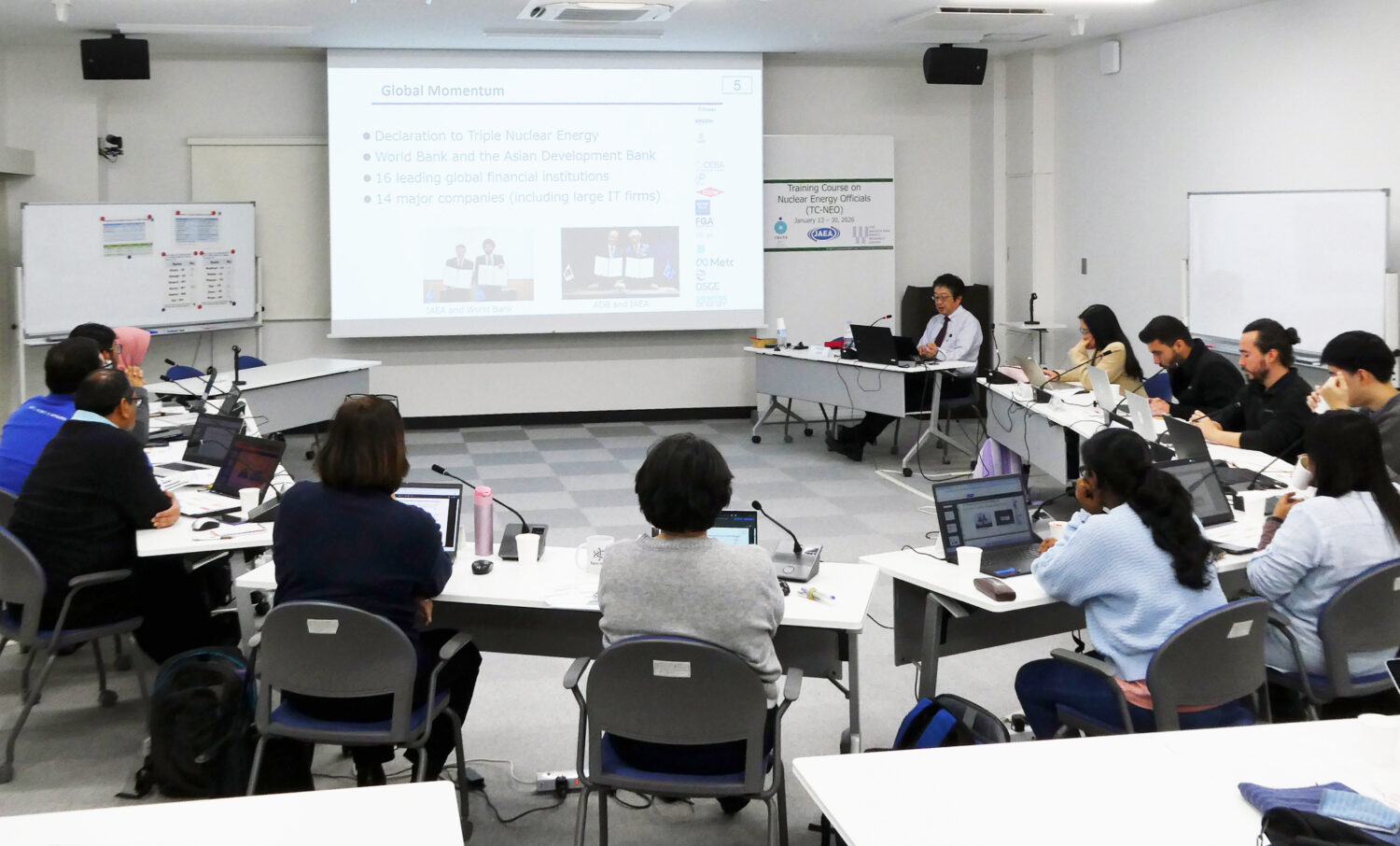The new strategy, in addition to the benefits of decarbonization, looks at measures and responses benefiting people’s lives. It is supported by an Action Plan for the Growth Strategy, approved at a cabinet meeting held the same day.
The new Green Growth Strategy restated the action plans that had appeared earlier for 14 key areas and industries, as follows:
- Offshore wind power, solar power, geothermal power
- Hydrogen, fuel ammonia
- Next-generation thermal energy
- Nuclear power
- Automobiles and storage batteries
- Semiconductors and information technology
- Marine vessels
- Physical distribution, flows of people, and civil engineering infrastructure
- Foods, agriculture, forestry and fisheries
- Aircraft
- Carbon recycling, materials
- Housing, structures, and next-generation electric power management
- Resource recycling
- Lifestyles
The following targets were given for the nuclear industry:
- Steady promotion of fast-reactor development through international cooperation (a newly-added item this time).
- Demonstration of technology for small modular reactors (SMRs) by 2030 through international cooperation.
- Establishment by 2030 of elemental technology involved in the production of hydrogen using high-temperature, gas-cooled reactors (HTGRs).
- Steady promotion of nuclear fusion R&D through international cooperation, including the ITER Project.
Wording was removed from the original strategy that had called for maximizing nuclear utilization. On the other hand, reference was newly added in the latest strategy regarding the promotion of nuclear-related R&D and personnel training with an eye to the future.
Also, advanced cancer treatment through manufacturing radiopharmaceutical medicines using research reactors was cited as an example of a way to benefit people’s lives,
At the end of 2020, prior to the issuance of the new strategy, METI formed a working group consisting of people from private companies, universities, research institutes and young volunteers working in administrative offices (average age of 30). The group met five times to deliberate.
In the Green Growth Strategy itself, a proposal from the group was also included on behalf of people who will be active in various spheres in 2050, as follows: “Activities to realize carbon neutrality by 2050 should not be thought of as representing short-term costs, but instead, a Gross Domestic Sustainability (GDS) index should be established as a measure of such activities as assets for the future.”
METI Minister Hiroshi Kajiyama, meeting the press after a Cabinet meeting on June 22, said, “Based on a recognition that ‘2050 is not the far future, but the near future,’ METI will definitely implement the Green Growth Strategy in cooperation with relevant ministries and agencies.”
Meanwhile, Commissioner Shin HOSAKA of the Agency for Natural Resources and Energy (ANRE), speaking at a citizens’ participatory meeting held in Fukui Prefecture on June 21, referred to the matter with this clear statement: “There has been no change whatsoever in the stance vis-à-vis energy policy.”



-013.jpg)






